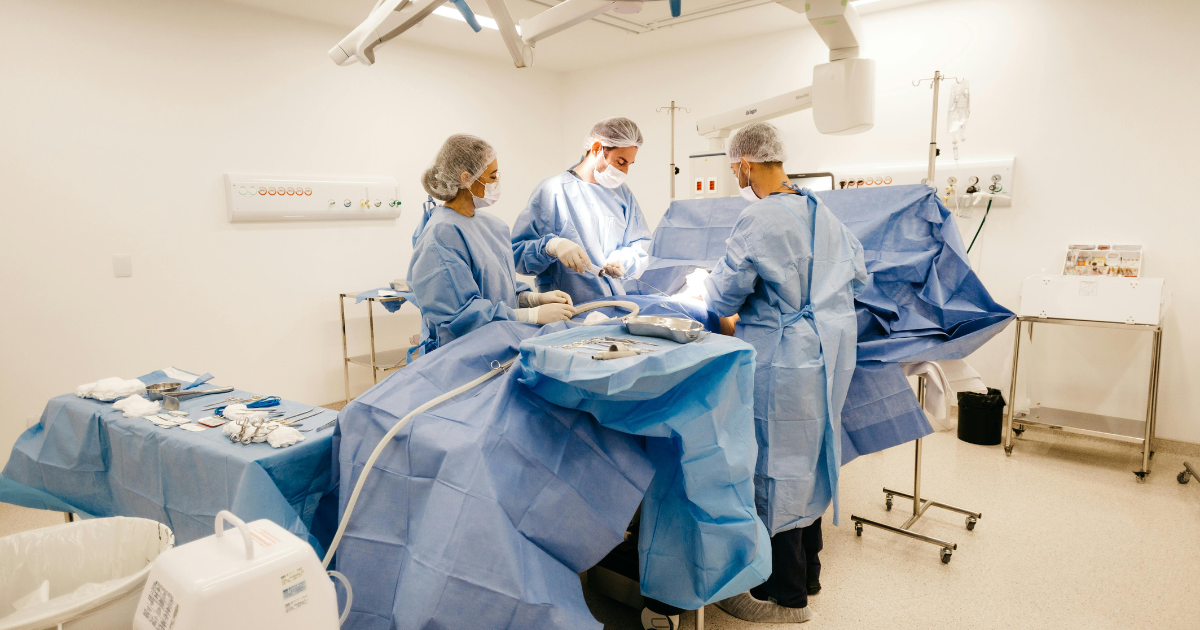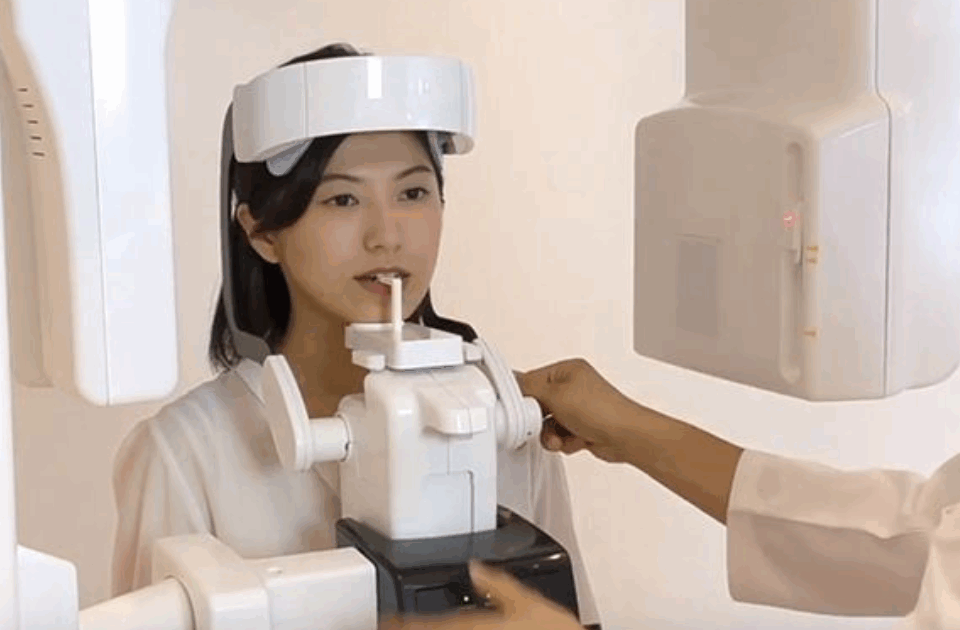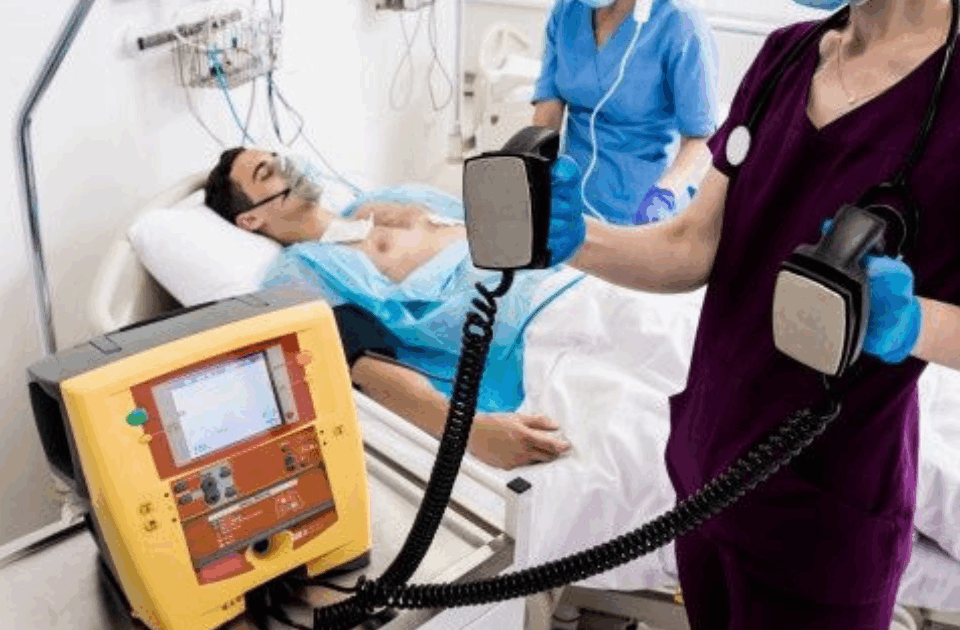
How Novocare’s Modular Operation Theaters Ensure Safe and Efficient Surgeries
September 12, 2025
The Role of Robotic Surgery in Novocare’s Surgical Services
September 12, 2025Introduction
Ear, nose, and throat (ENT) conditions are some of the most common health issues affecting individuals of all ages. From chronic sinus infections and hearing loss to tonsillitis and sleep apnea, many conditions require surgical intervention when conservative treatments fail.
Novocare Hospital has established itself as a leader in ENT surgical care by combining advanced surgical techniques, minimally invasive procedures, and patient-centered care. Patients undergoing ENT surgeries can expect safe procedures, thorough preoperative assessment, and comprehensive postoperative care.
This article provides an in-depth look at ENT surgeries at Novocare Hospital, what patients can expect before, during, and after surgery, and how the hospital ensures optimal outcomes and patient safety.
1. What Are ENT Surgeries?
ENT surgeries are procedures designed to diagnose, treat, or correct disorders of the ear, nose, and throat. ENT surgeons, also known as otolaryngologists, specialize in conditions ranging from hearing loss and chronic sinusitis to airway obstructions and voice disorders.
Common ENT Surgeries
- Tonsillectomy and Adenoidectomy: Removal of tonsils or adenoids to treat recurrent infections or breathing issues.
- Septoplasty: Correction of deviated septum to improve breathing.
- Endoscopic Sinus Surgery: Minimally invasive procedure to clear blocked sinuses.
- Ear Tube Surgery (Myringotomy): Placement of tubes to treat chronic ear infections and fluid buildup.
- Cochlear Implant Surgery: For patients with severe hearing loss.
- Thyroid and Neck Surgeries: Treatment of nodules, tumors, and other neck masses.
- Laryngoscopy and Vocal Cord Procedures: Address voice disorders and airway issues.
2. Preoperative Assessment at Novocare
Novocare Hospital emphasizes a thorough preoperative evaluation to ensure patient safety and optimize surgical outcomes.
2.1 Medical History and Examination
- Complete review of past medical history, allergies, and medications.
- ENT-specific assessment, including hearing tests, nasal endoscopy, and imaging studies.
- Evaluation of anesthesia risk by an experienced anesthesiologist.
2.2 Diagnostic Tests
- Blood tests and coagulation profile
- Imaging: CT scan or MRI for sinus, nasal, or skull base surgery
- Audiometry for hearing assessments
- Pulmonary function tests if respiratory issues are involved
2.3 Patient Education
- Explanation of the procedure, expected outcomes, and potential risks
- Discussion of anesthesia, postoperative care, and recovery timeline
- Addressing patient questions to reduce anxiety
3. Preparing for ENT Surgery
Proper preparation ensures smooth surgery and faster recovery.
- Fasting: Patients may need to fast for 6–12 hours prior to surgery.
- Medication Management: Discontinue certain medications (blood thinners, anti-inflammatory drugs) as advised.
- Hygiene: Preoperative cleansing to reduce infection risk.
- Transportation and Support: Arrange for a companion post-surgery for safe discharge.
4. Types of ENT Surgeries at Novocare Hospital
4.1 Tonsillectomy and Adenoidectomy
Purpose: Treat recurrent infections or obstructive sleep apnea.
Procedure Overview:
- General anesthesia is administered.
- Tonsils and/or adenoids are carefully removed.
- Hemostasis is ensured to prevent bleeding.
- Recovery includes pain management and dietary adjustments.
Benefits:
- Improved breathing and sleep quality
- Reduced frequency of infections
- Enhanced quality of life
4.2 Endoscopic Sinus Surgery
Purpose: Clear blocked sinuses and treat chronic sinusitis.
Procedure Overview:
- Minimally invasive, performed under general or local anesthesia.
- A small endoscope is inserted into the nasal cavity.
- Diseased tissue or polyps are removed; normal anatomy preserved.
- Nasal packing may be used temporarily.
Benefits:
- Reduced pain and faster recovery compared to traditional sinus surgery
- Improved sinus drainage and breathing
- Lower risk of complications
4.3 Ear Surgeries
Common Procedures:
- Myringotomy with Tube Placement: Relieves fluid buildup in the middle ear.
- Tympanoplasty: Repairs perforated eardrum.
- Stapedectomy: Restores hearing in patients with otosclerosis.
Benefits:
- Improved hearing and speech development (especially in children)
- Reduced risk of recurrent infections
- Long-term auditory health
4.4 Thyroid and Neck Surgeries
Purpose: Removal of thyroid nodules, tumors, or parathyroid issues.
Procedure Overview:
- Minimally invasive techniques are used whenever possible.
- Careful preservation of nerves and blood vessels.
- Postoperative monitoring for calcium levels and voice changes.
Benefits:
- Minimal scarring
- Quick recovery
- Reduced surgical risk
4.5 Laryngoscopy and Vocal Cord Procedures
Purpose: Treat voice disorders, polyps, nodules, or airway obstructions.
Procedure Overview:
- Performed under general or local anesthesia.
- Endoscopic instruments or lasers may be used for precision.
- Voice therapy may be recommended post-surgery.
Benefits:
- Preserves vocal quality
- Minimally invasive with faster recovery
- Effective resolution of airway or voice issues
Table: Common ENT Surgeries at Novocare
| Surgery Type | Purpose | Anesthesia | Recovery Time | Benefits |
|---|---|---|---|---|
| Tonsillectomy/Adenoidectomy | Recurrent infections, sleep apnea | General | 7–10 days | Improved breathing, fewer infections |
| Endoscopic Sinus Surgery | Chronic sinusitis, polyps | General/Local | 3–7 days | Better drainage, less pain |
| Ear Tube Surgery | Fluid buildup in middle ear | General | 1–2 days | Improved hearing, fewer infections |
| Tympanoplasty | Eardrum repair | General | 5–7 days | Restored hearing |
| Stapedectomy | Otosclerosis | General | 5–10 days | Hearing restoration |
| Thyroid Surgery | Nodules, tumors | General | 5–7 days | Minimal scarring, safe recovery |
| Vocal Cord Surgery | Voice disorders | General/Local | 2–5 days | Preserves vocal quality |
5. During ENT Surgery
- Anesthesia Administration: Ensures patient comfort and safety.
- Surgical Precision: Surgeons use magnification and minimally invasive instruments.
- Intraoperative Monitoring: Vital signs, oxygen levels, and anesthesia depth continuously monitored.
- Sterile Technique: Maintains a contaminant-free environment.
Outcome: Safe, effective procedures with minimal complications.
6. Postoperative Care
Novocare Hospital emphasizes comprehensive postoperative management for ENT patients.
6.1 Immediate Recovery
- Monitoring in a post-anesthesia care unit (PACU)
- Pain management with medications
- Observation for bleeding, swelling, or respiratory issues
6.2 Home Care Instructions
- Soft diet and hydration
- Avoid strenuous activity
- Nasal saline irrigation for sinus surgery patients
- Ear protection for otologic procedures
6.3 Follow-Up Visits
- First visit within 1 week of surgery
- Removal of sutures or nasal packing as needed
- Long-term evaluation of hearing, breathing, or thyroid function
7. Benefits of ENT Surgeries at Novocare
- Minimally Invasive Techniques: Reduced pain and scarring
- Advanced Technology: Endoscopes, lasers, and precision instruments
- Experienced ENT Specialists: Highly trained surgeons with years of expertise
- Patient-Centered Care: Education, pre-op counseling, and postoperative guidance
- Improved Quality of Life: Relief from chronic infections, hearing improvement, and restored breathing
8. Risks and Safety Measures
While ENT surgeries are generally safe, risks include:
- Bleeding
- Infection
- Anesthesia reactions
- Temporary voice changes (for vocal surgeries)
- Hearing fluctuation (for ear surgeries)
Novocare Safety Protocols:
- Preoperative evaluation and risk assessment
- Sterile surgical environment and advanced equipment
- Postoperative monitoring and early intervention for complications
9. Frequently Asked Questions (FAQs)
Q1: How long is the hospital stay for ENT surgery?
A1: Varies by procedure; outpatient for minor surgeries, 1–3 days for major surgeries.
Q2: Is ENT surgery painful?
A2: Mild discomfort is expected; pain is managed with medications.
Q3: When can I return to work?
A3: Minor surgeries: 1–2 days; major surgeries: 1–2 weeks.
Q4: Will there be visible scars?
A4: Minimally invasive techniques result in minimal or hidden scars.
Q5: How do I prepare for surgery?
A5: Follow fasting, medication adjustments, and hygiene instructions provided by Novocare.
Q6: Can children undergo ENT surgeries?
A6: Yes. Pediatric ENT surgeries are performed routinely with special care.
Q7: Are ENT surgeries covered by insurance?
A7: Novocare assists with insurance approvals and transparent billing.
Q8: What is the recovery process for sinus surgery?
A8: Usually 3–7 days, with nasal saline irrigation and follow-up checkups.
Q9: How long after surgery will symptoms improve?
A9: Depends on the procedure; relief is often noticeable within days to weeks.
Q10: Can multiple ENT procedures be performed simultaneously?
A10: Yes, when medically safe, Novocare coordinates combined procedures to reduce anesthesia exposure.
10. Patient Success Stories
Case 1: A 10-year-old with chronic tonsillitis underwent tonsillectomy. Returned to school within 10 days, with no recurrent infections.
Case 2: A 35-year-old woman with chronic sinusitis had endoscopic sinus surgery. Breathing improved immediately; resumed normal activity in one week.
Case 3: An adult patient with hearing loss received cochlear implants. Regained functional hearing and improved communication skills within months.
These examples demonstrate Novocare’s commitment to safe, efficient, and life-enhancing ENT surgical care.
11. Why Choose Novocare for ENT Surgeries
- Expert ENT Surgeons: Highly skilled in advanced techniques.
- Modern Operating Rooms: Equipped with state-of-the-art technology.
- Patient-Centered Approach: Pre-op counseling and detailed postoperative guidance.
- Integrated Services: Laboratory, imaging, and consultation under one roof.
- Focus on Safety: Sterile environment and strict protocols minimize complications.
- Minimally Invasive Options: Faster recovery and minimal scarring.
12. Preparing for Your ENT Consultation
- Bring past medical records and imaging studies.
- List all medications and supplements.
- Note any allergies or prior surgical complications.
- Prepare questions about procedures, recovery, and lifestyle adjustments.
- Discuss anesthesia options and preoperative instructions.
Early consultation allows better surgical planning and reduced anxiety.
Conclusion
ENT surgeries at Novocare Hospital combine advanced surgical techniques, minimally invasive procedures, and patient-centered care. Patients can expect:
- Thorough preoperative assessment
- Safe and sterile surgical environment
- Minimally invasive techniques for reduced pain and scarring
- Comprehensive postoperative care and follow-up
- Improved quality of life and resolution of ENT-related issues
Novocare ensures that every ENT patient receives high-quality, safe, and efficient care, helping them regain optimal ear, nose, and throat health.
Take charge of your ENT health—consult Novocare Hospital and experience expert surgical care designed for your safety, comfort, and recovery.




